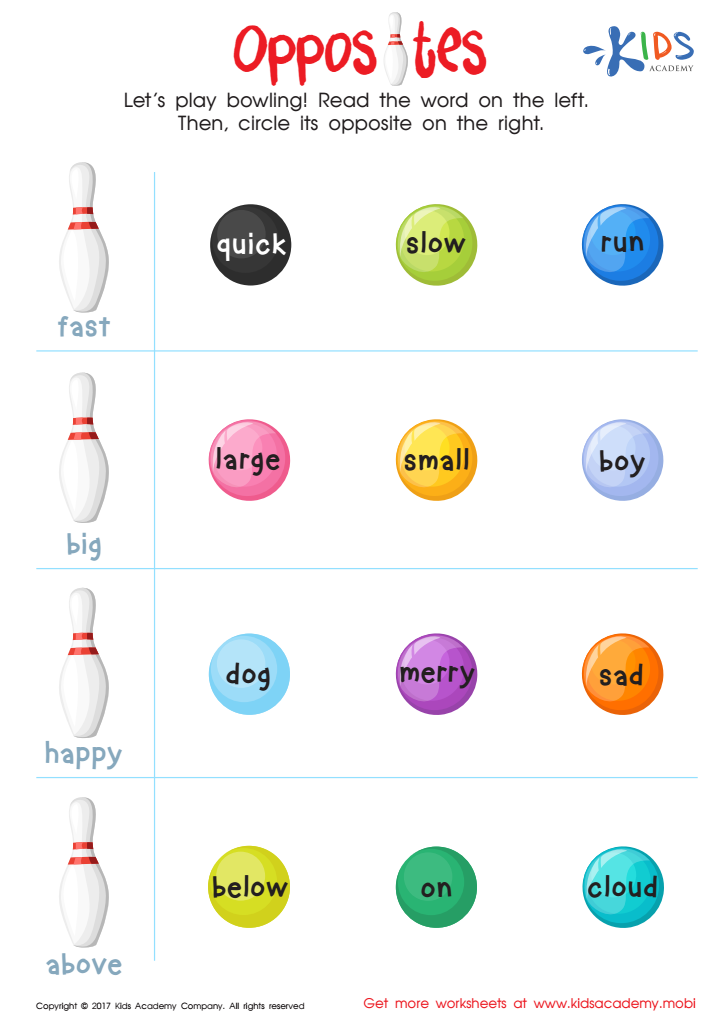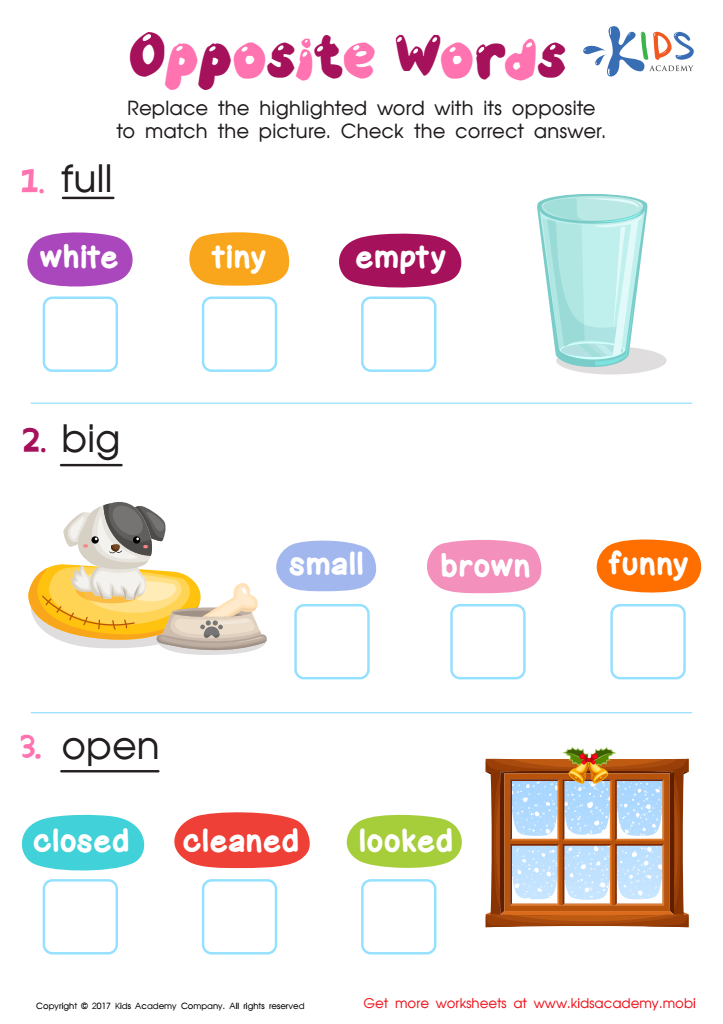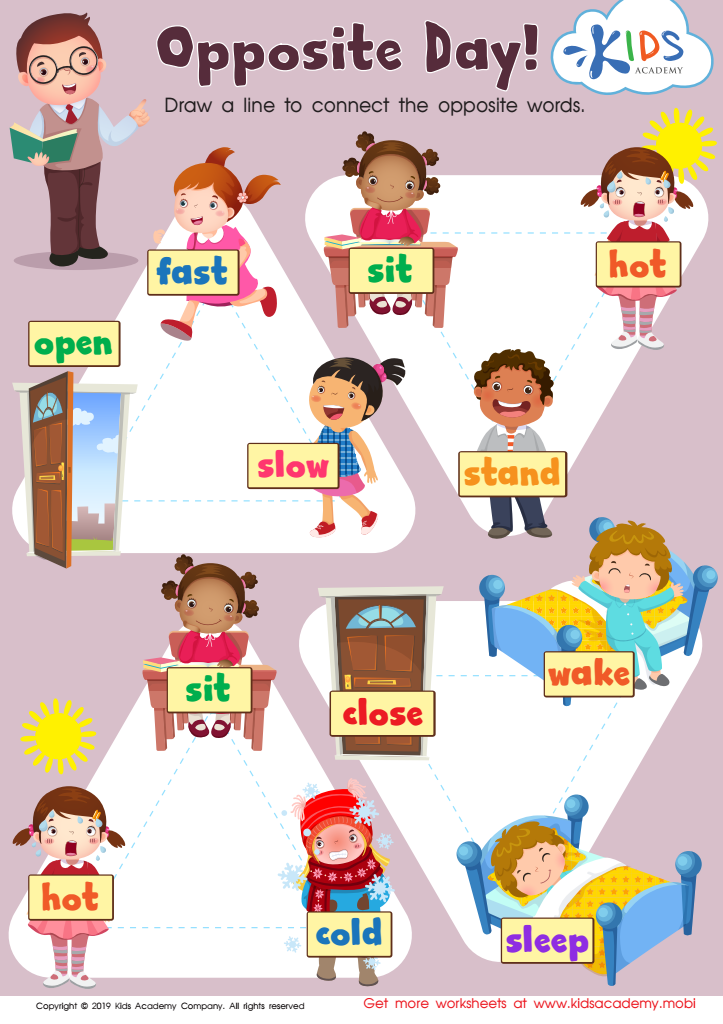Demonstrate Understanding of Frequently Occurring Verbs and Adjectives by Relating Them to Their Opposites - Lesson for Preschool, Chapter - Common Vocabulary
In this engaging lesson titled "Demonstrate Understanding of Frequently Occurring Verbs and Adjectives by Relating Them to Their Opposites," preschool students will embark on a fascinating journey through the world of common vocabulary. Focused on the foundational elements of language, this lesson situates itself within the Vocabulary unit of the Common Vocabulary chapter, providing young learners with the essential tools they need to build their linguistic skills. Through a series of interactive activities, including Opposites Worksheet, Opposite Words Worksheet, Opposite Day Worksheet, and a general exploration of Opposites, students will delve into the intriguing concept of antonyms—words with opposite meanings.
Understanding and identifying opposites is crucial for preschoolers as it enhances their descriptive capabilities, enriches their vocabulary, and aids in the development of their cognitive skills by encouraging them to make connections and see relationships between different words. By learning frequently occurring verbs and adjectives along with their opposites, students will not only boost their ability to communicate more effectively but also lay a solid foundation for future reading and writing success. This lesson promises to be an enlightening experience, setting the stage for a lifelong journey of language exploration and appreciation.
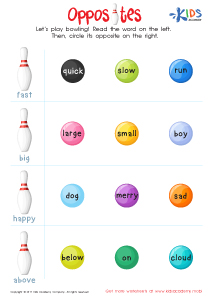
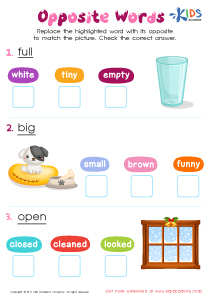
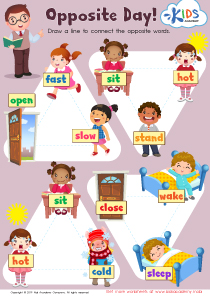
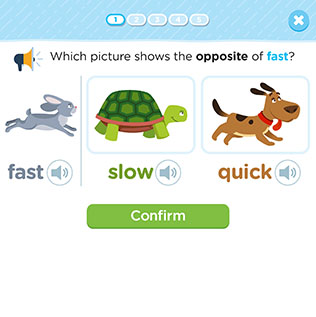
-
Activity 1 / Opposites Worksheet
If your students are fans of bowling, this exercise is sure to be an enjoyable one. In this worksheet, your young ones are expected to correctly identify and circle the correct opposites of the words on the left. Read the words on the left with your children, and ask them if they know what the opposites are. Then, look through the options on the right and see if their answer is among them. Circle the correct answers.
-
Activity 2 / Opposite Words Worksheet
If your child understands the meaning of some easy words, they should take it a step further by learning words and opposites, too. Look through the worksheet with your little one. Ask them if they can read the underlined words. Then, look at the words in the highlighted colors. Ask your child which of the words is the correct opposite of the underlined word. Remember that the correct answer should match with the picture.
-
Activity 3 / Opposite Day Worksheet
It’s important for early learners to learn about the concept of opposites as it helps them build higher-order thinking skills and develops their critical thinking too. This entertaining worksheet familiarizes your little learner with the concept of opposites and the accompanying opposite words, while also helping them get used to reading high-frequency words and developing fine motor skills on the traceable PDF.
-
Activity 4 / Opposites - Quiz
This quiz assesses students’ ability to identify opposites.
